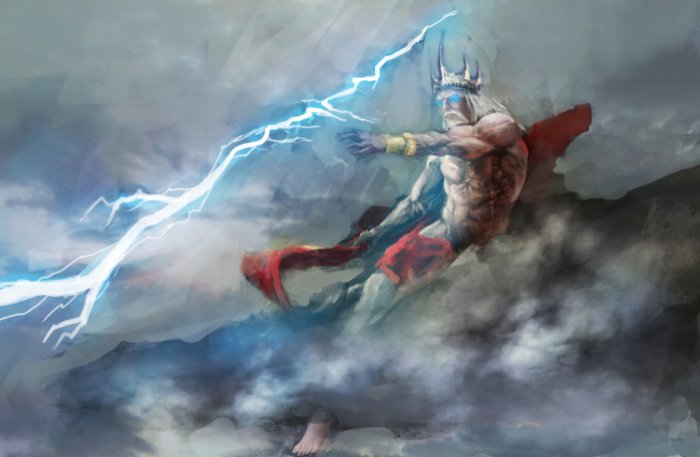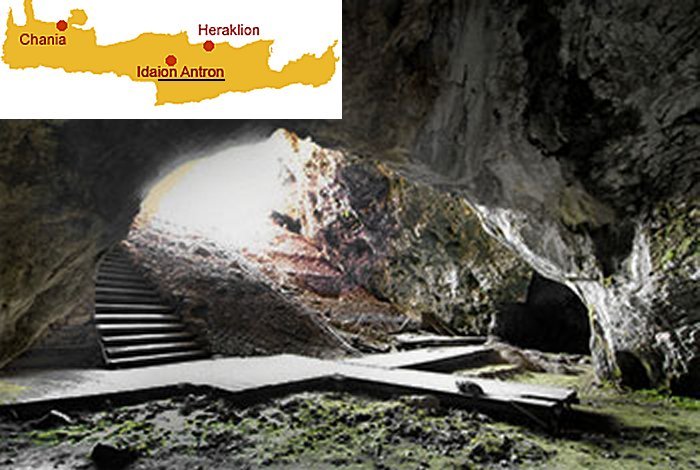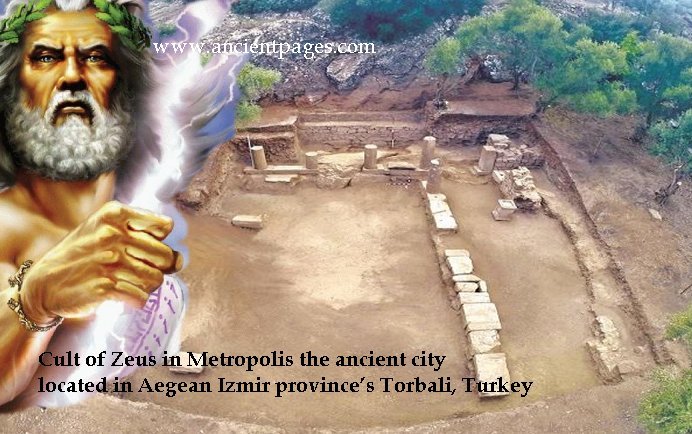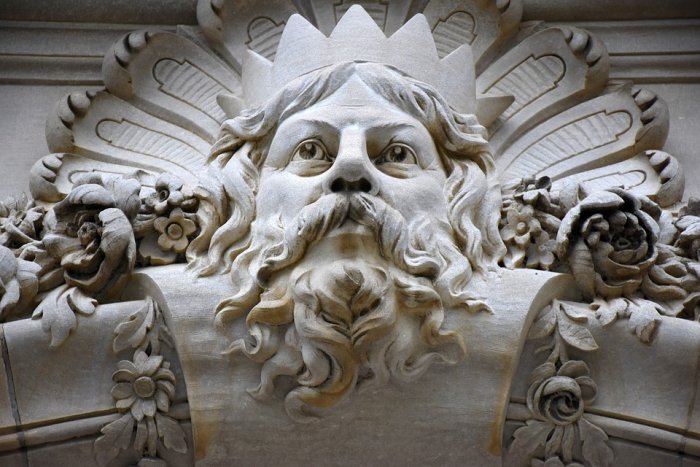Zeus – ‘Cloud Collector’, God Of Order, Law And Justice – Most Powerful God Of Olympian Pantheon
A. Sutherland - AncientPages.com - In Greek mythology, Zeus is the God of heaven and the father of the gods of Mount Olympus; his counterpart in Roman mythology is Jupiter.
God Zeus. Image: Stock photo
Zeus’ Powerful Name
The name “Zeus” originates from the Indo-European deiwo-s and binds the sky, brightness, and light. Zeus was also called the brilliant ("Lykaios") and ruled over the sky and everything is included.
Zeus had many other nicknames such as Ksenios (patron of hospitality (xenia) and guests), Katachtonios (Underground), Basileus (or King), Soter (or Savior) , Ktesjos, which binds him with prosperity and many more.
Birth Of Zeus And His Foster Mother, Amalthea
Zeus came into the world from the relationship of Cronus and Rhea. He was the youngest of six children. His siblings were swallowed by Cronus as soon as they were born since he was told about the prophecy that he was destined to be abandoned by his son as he had previously overthrown Uranus, his own father.
This prophecy was dangerous and Rhea wanted very much to avert it. When Zeus was about to be born, Rhea sought Gaia to prepare a plan to save her child so that Cronus would get his retribution for his acts against Uranus and his own children. Finally, Rhea gave birth to Zeus in Crete, while Cronus received only a rock wrapped in swaddling clothes, which he promptly swallowed.
The Ideon Cave is located on Mt Ida, the highest mountain in Crete. It flourished in antiquity (4000 BC to the 1st century AD). The Ideon Cave was famous for being the place where Zeus, the Father of the Gods, was born and grew up. Image credit: Explore Crete
Depending on the version of his story, Zeus was raised by a nymph named Amalthea (sometimes presented as a goat) in a cave called Dictaeon Antron (Psychro Cave). Since Cronus ruled over the Earth, the heavens, and the sea, Amalthea (foster-mother) hid the little boy by dangling him on a rope from a tree so he was suspended between earth, sea, and sky. It made him invisible to his father.
Additionally, she organized a company of soldiers, the Kuretes (or Kouretes) who were ordered to shout, dance, and clash their spears against their shields in the vicinity of the cave so that Cronus would not hear Zeus’ cry.
Zeus’ Wives And Infamous Erotic Escapades
Zeus had three wives: Metis ('skill' (or 'cunning intelligence') who was also his cousin; she helped him to defeat his father Cronus; next, Zeus married Themis ('right'), the goddess of fixed order and divine right and through this marriage, he could stabilize his position overall gods and men alike. Hera was his third wife and his children with her were Ares, Hebe, and Hephaestus, Eileithyia, Angelos, and Eris.
Zeus was notorious for his erotic escapades and is known to have many children apart from those Hera bore for him.
In fact, Zeus contributed with a great number of divine, semi-divine and mortal offspring.
He tried to use a nymph called Echo to distract Hera and to keep her from discovering his erotic escapades.
Places Of Zeus Cult
Zeus was widely worshipped across ancient Greece and possessed many sanctuaries and shrines. The most famous places of Zeus cult are Ideon on Mt Ida, Dodona, Delphi, considered the center of the world as represented by the stone monument known as the Omphalos of Delphi and also Crete.
In Arcadia, there was a cult of Zeus Likejos (or ‘Wolf’) and there, people were sacrificed to him. Those who participated in this sacrifice would eat human flesh.
According to legends, the participants of this cult turned into wolves for eight years. In the ninth year, they regained human form. However, there was one condition. Throughout this time, when they were in a valiant form, they could not taste human meat. Otherwise, they would remain changed forever.
Appearance And Attributes Of Zeus
Zeus was usually presented as an old man with a long beard. The attributes of Zeus were a bull, eagle, oak tree, and a formidable thunderbolt created for him by the Cyclopes when he released them from Tartarus.
Most frequent bronze figurines depict Zeus seated in majesty or standing, striding forward with a thunderbolt leveled in his raised right hand. These artifacts widely emerged at Olympia and many other places in Greece during the archaic and early classical periods.
Sculpture of Zeus. Image credit: Public Domain
Zeus could appear in a different form, for instance as a golden, life-giving rain fell on Danae, in the form of a bull when he abducted Europe (Europa). In Delphi, he was worshiped in the form of a stone. The oak was the image of the god in Dodona.
Zeus – Representative Deity With Many Roles
Zeus played a dominant role, presiding over the Greek Olympian pantheon and represented the Greeks’ religious beliefs. He fathered many of the greatest Greek heroes and was featured in many of the Greeks’ local cults. He was the master of the clear sky, thunders, clouds, and rain, which he brought with his power to the earth.
At the command of Zeus, for stealing the fire and giving it to the people, Prometheus was chained to the rock, and the eagle arriving every day fed his liver, which then grew back. Divine secrets were to be betrayed, according to one version, by Orpheus, and for this reason, Zeus smashed the singer with a thunderbolt, one of the divine weapons of the gods.
As a guardian of peace, Zeus was the mediator in disputes between the gods. As Astrapios ("Lightninger"), Zeus was as a weather god – “cloud colletor” who could wrap everything in black clouds, pouring rain and causing storms giving terrible consequences.
He was also the master of victories, the guardian of cities, strangers, whom the Zeus law required to receive as guests and families. According to an ancient myth that is very popular among the inhabitants of Crete, there is the tomb of Zeus, indicated in a number of locations. It is in the Cretan cave that God is to die and regenerate every year.
Written by – A. Sutherland - AncientPages.com Senior Staff Writer
Copyright © AncientPages.com All rights reserved. This material may not be published, broadcast, rewritten or redistributed in whole or part without the express written permission of AncientPages.com
Expand for referencesBrügger C. Homer’s Iliad, Band 16
Bremmer J. N., Erskine A., The Gods of Ancient Greece
JSTOR, Zeus Herkeios: Thematic Unity in the Hekatompedon Sculptures
Graves, R; The Greek Myths
More From Ancient Pages
-
 New Genes May Explain Why Humans Got Such Big Brains
Archaeology | Jun 2, 2018
New Genes May Explain Why Humans Got Such Big Brains
Archaeology | Jun 2, 2018 -
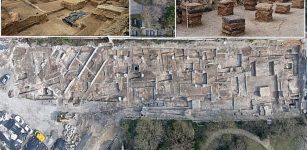 A Huge Site Dated To Roman-Era Unearthed In Reims (Marne), France
Archaeology | Mar 20, 2023
A Huge Site Dated To Roman-Era Unearthed In Reims (Marne), France
Archaeology | Mar 20, 2023 -
 Massive Well-Preserved Second Temple-Era Aqueduct Unearthed In Jerusalem
Archaeology | Aug 29, 2023
Massive Well-Preserved Second Temple-Era Aqueduct Unearthed In Jerusalem
Archaeology | Aug 29, 2023 -
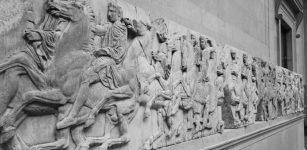 British Museum Is World’s Largest Receiver Of Stolen Goods – Says QC
Archaeology | Nov 12, 2019
British Museum Is World’s Largest Receiver Of Stolen Goods – Says QC
Archaeology | Nov 12, 2019 -
 Mysterious Cave With Giant Skulls Decorated By The Neanderthals Discovered In Spain
Archaeology | Jan 27, 2023
Mysterious Cave With Giant Skulls Decorated By The Neanderthals Discovered In Spain
Archaeology | Jan 27, 2023 -
 A 4.4 Million-Year-Old Hand Of ‘Ardi’ Has Some Clues On Humans’ Upright Walking
Fossils | Feb 25, 2021
A 4.4 Million-Year-Old Hand Of ‘Ardi’ Has Some Clues On Humans’ Upright Walking
Fossils | Feb 25, 2021 -
 On This Day In History: Unbelievable Flight Took Place – On Apr 28, 1939
News | Apr 28, 2016
On This Day In History: Unbelievable Flight Took Place – On Apr 28, 1939
News | Apr 28, 2016 -
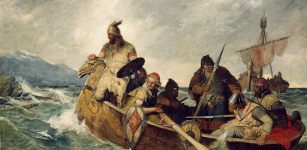 Evidence Scots And Irish Settled Iceland A Century Before The Vikings?
Featured Stories | Jan 7, 2023
Evidence Scots And Irish Settled Iceland A Century Before The Vikings?
Featured Stories | Jan 7, 2023 -
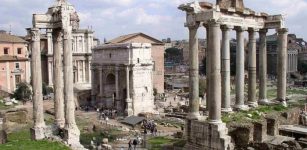 Mystery Of Ancient Roman Concrete That Still Stands Strong – Has A 2,000-Year-Old Engineering Puzzle Been Solved?
Ancient Technology | Jul 5, 2017
Mystery Of Ancient Roman Concrete That Still Stands Strong – Has A 2,000-Year-Old Engineering Puzzle Been Solved?
Ancient Technology | Jul 5, 2017 -
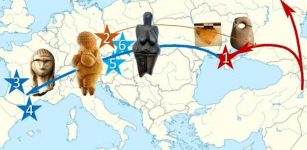 Ancient Skulls From Ukraine Reveal Early Modern Humans Came From The East
Archaeology | Nov 9, 2023
Ancient Skulls From Ukraine Reveal Early Modern Humans Came From The East
Archaeology | Nov 9, 2023 -
 Cremation In The Near East Dates Back To 7,000 B.C.
Archaeology | Aug 13, 2020
Cremation In The Near East Dates Back To 7,000 B.C.
Archaeology | Aug 13, 2020 -
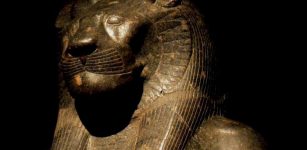 66 Diorite Statues Of Lion-Headed Goddess Sekhmet Discovered In Luxor, Egypt
Archaeology | Mar 9, 2017
66 Diorite Statues Of Lion-Headed Goddess Sekhmet Discovered In Luxor, Egypt
Archaeology | Mar 9, 2017 -
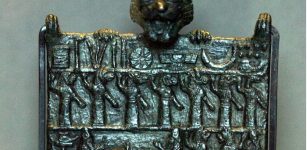 Lamashtu Plaque: Assyrian Healing Device Against The Evil Goddess
Artifacts | Mar 16, 2023
Lamashtu Plaque: Assyrian Healing Device Against The Evil Goddess
Artifacts | Mar 16, 2023 -
 Metal Artifacts In Southeast Asia Archaeological Theory – Challenged
Archaeology | Jul 31, 2021
Metal Artifacts In Southeast Asia Archaeological Theory – Challenged
Archaeology | Jul 31, 2021 -
 Ancient Treasure Hidden In Perplexing Secret Underground Labyrinth In France – Discovery And Forbidden Excavations – Part 2
Featured Stories | Jan 19, 2020
Ancient Treasure Hidden In Perplexing Secret Underground Labyrinth In France – Discovery And Forbidden Excavations – Part 2
Featured Stories | Jan 19, 2020 -
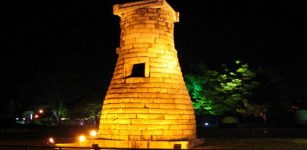 Cheomseongdae “Star-Gazing Tower” Is The Oldest Observatory In East Asia
Featured Stories | Mar 31, 2021
Cheomseongdae “Star-Gazing Tower” Is The Oldest Observatory In East Asia
Featured Stories | Mar 31, 2021 -
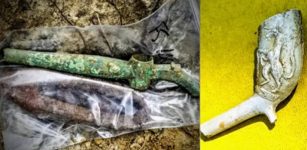 Tavern And Mysterious Tools Discovered In North Carolina – Stunning Ancient Time Capsule
Archaeology | Jun 19, 2019
Tavern And Mysterious Tools Discovered In North Carolina – Stunning Ancient Time Capsule
Archaeology | Jun 19, 2019 -
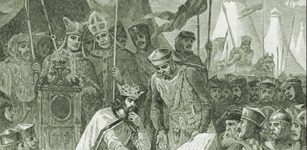 On This Day In History: Magna Carta Sealed By King John Of England – On June 15, 1215
News | Jun 15, 2016
On This Day In History: Magna Carta Sealed By King John Of England – On June 15, 1215
News | Jun 15, 2016 -
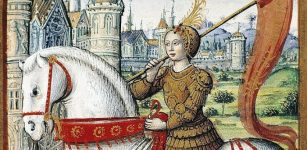 On This Day In History: Joan Of Arc Enters Orleans, The City Besieged By The English – On Apr 29, 1429
News | Apr 29, 2016
On This Day In History: Joan Of Arc Enters Orleans, The City Besieged By The English – On Apr 29, 1429
News | Apr 29, 2016 -
 The Caesar Cipher: Ancient And Simple Yet Effective Cipher Used By Julius Caesar
Ancient History Facts | May 30, 2018
The Caesar Cipher: Ancient And Simple Yet Effective Cipher Used By Julius Caesar
Ancient History Facts | May 30, 2018

